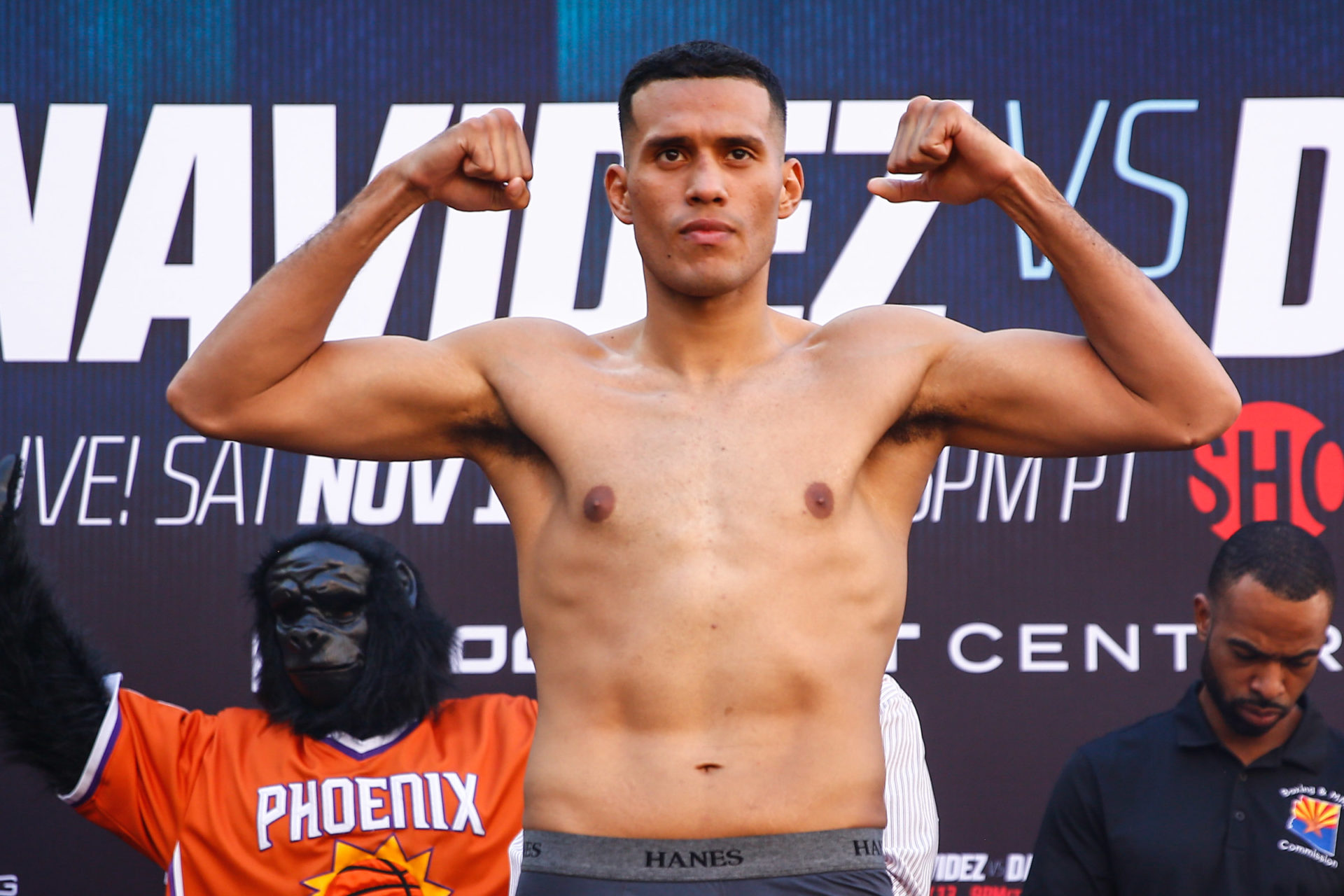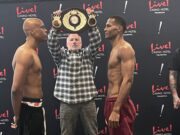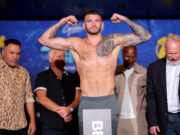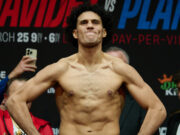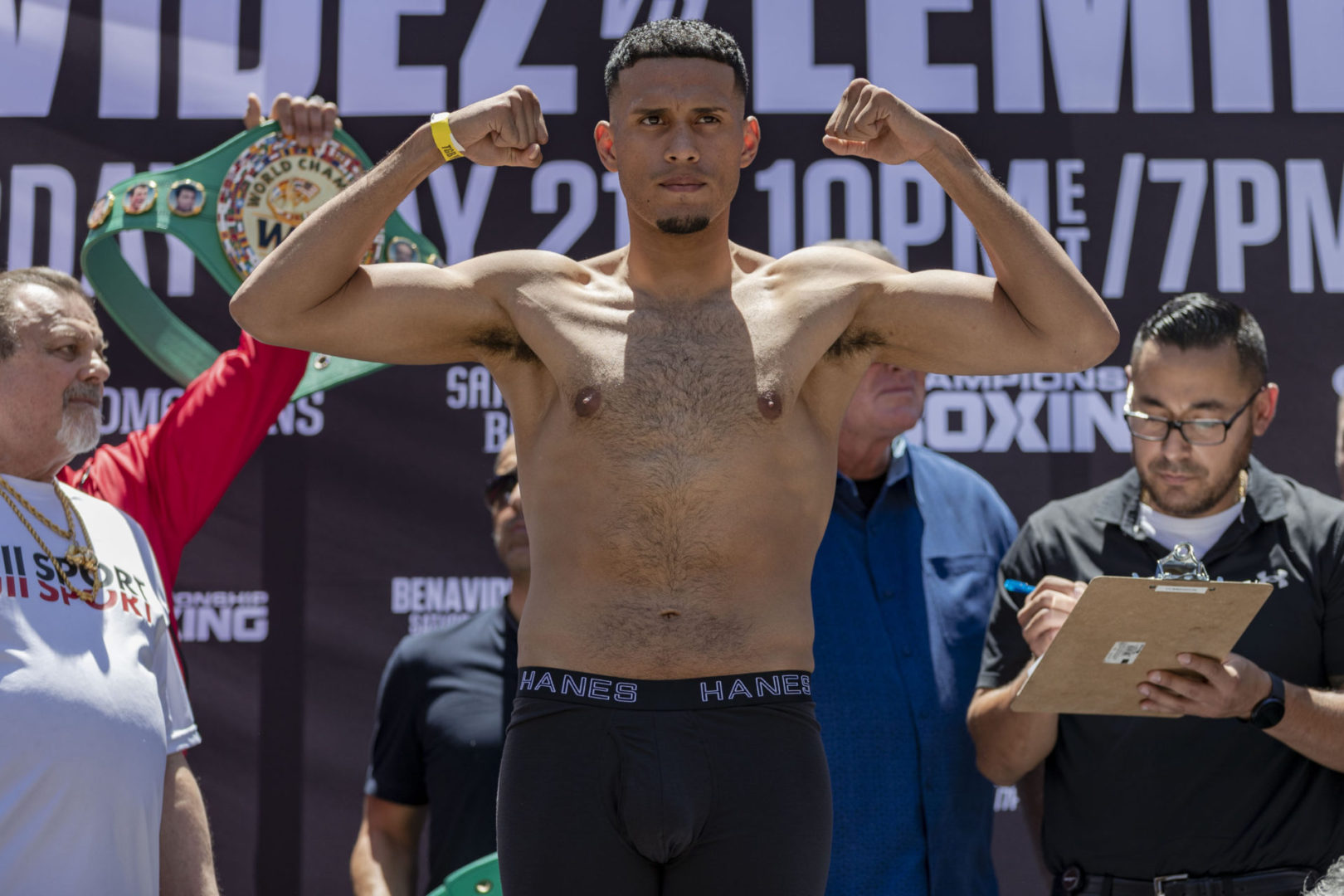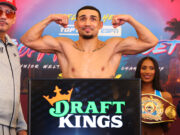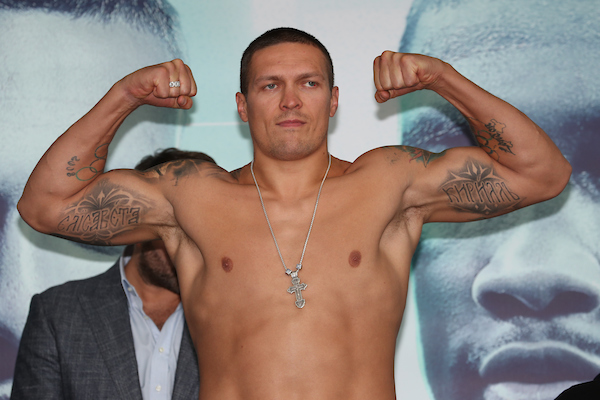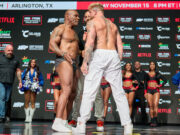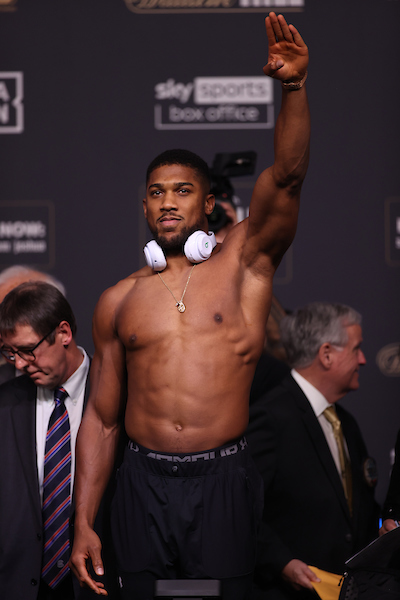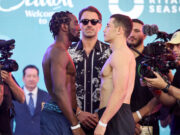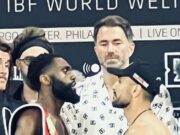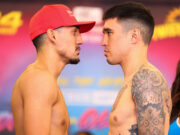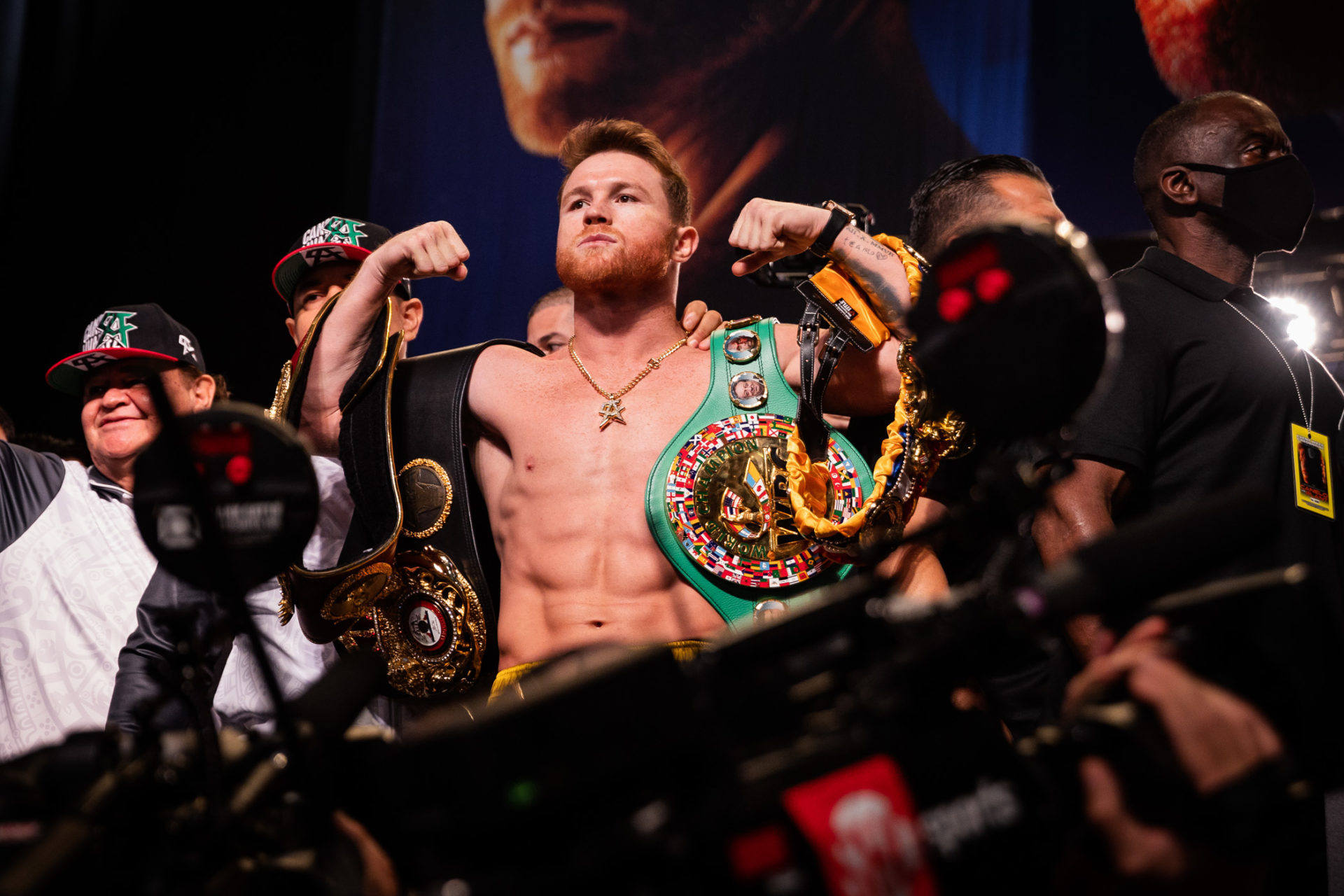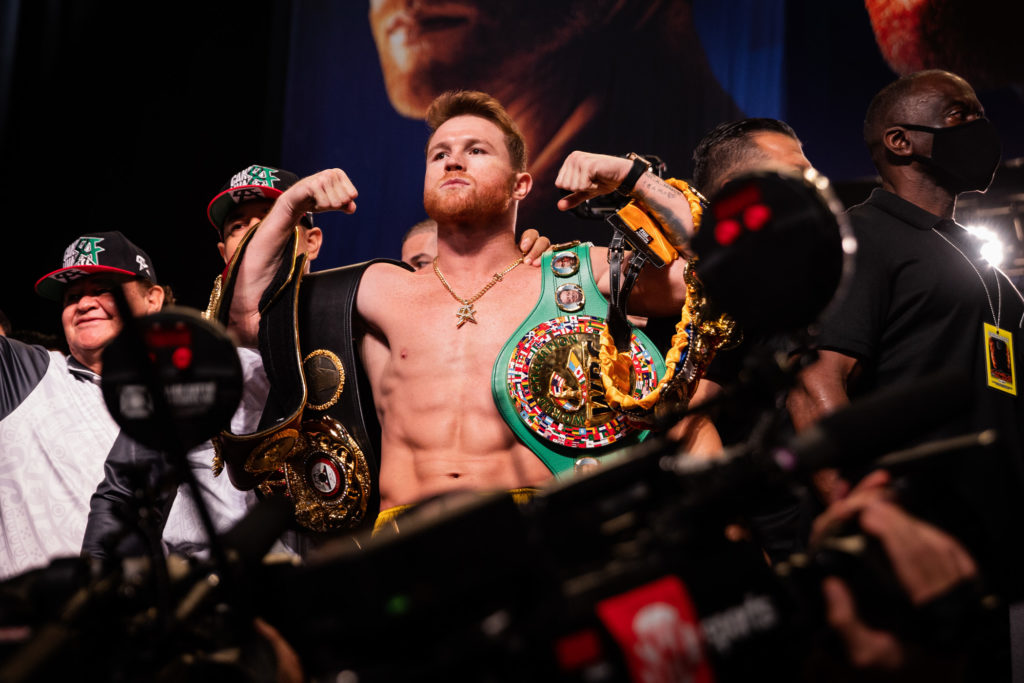
By Norm Frauenheim–
Canelo Alvarez has an opportunity. That sounds crazy, especially in the immediate aftermath of his loss to Dmitry Bivol. The wounds are still there. The pain lingers. He tried to hide some of it with dark glasses a couple of hours after the stunning defeat. Nobody could look into his beaten eyes.
But the bruises will heal. The pain will subside. That’s when he’ll see a chance to actually fulfill the history he always says he is seeking. Legacy is become kind of a bumper sticker, not just in boxing. Its value has been eroded, a little bit like title belts. Everybody has one.
But not everybody is confronted with the adversity that comes with defeat. It’s deeply personal, more in boxing than in any other sport. Egos can get busted up, just like jaws and noses, especially when a world-wide audience is watching.
The loss to Bivol wasn’t Canelo’s first. He’s been there, losing to a masterful Floyd Mayweather Jr. in September 2013. But that was a younger Canelo, an apprentice still learning the craft. It was also a fight few expected him to win.
Last Saturday, Canelo was considered the master. He was the favorite. The scorecard defeat to a mostly unknown Russian light-heavyweight had to be more painful, which is what transforms it into the sort of opportunity that will put some real substance into Canelo’s pursuit. For him, legacy isn’t just a word or another belt anymore.
It’s real.
Adversity defines boxing. People watch to see fighters get off the canvas. To see comebacks. There’s an inherent dilemma in all of this. Nobody seeks defeat. Mayweather retired unbeaten. So, did Rocky Marciano, Andre Ward and Joe Calzaghe. So, did guys named Sven Ottke, Dmitry Pirog and Harry Simon. They’re all great fighters.
But the game amounts to a lot more than the 0 on the right side of the record. It’s about overcoming. It’s Ali coming back to beat Frazier. It’s Sugar Ray Leonard coming back to beat Roberto Duran. That’s history. Now, Canelo has a chance at some.
Late last Saturday at Las Vegas’ T-Mobile Arena, he wasn’t exactly clear about what he plans to do. His contract with Bivol included a clause for an immediate rematch. In the middle of the ring, Canelo said he would invoke the clause. A couple of hours later, he wasn’t sure.
“We’re gonna go to see what’s next, to talk about it,’’ he said.
Canelo will take his time. And he should. There’s plenty to consider. There’s a debate about his loss to Bivol, who displayed immense poise and smarts in front of roaring Cinco de Mayo crowd.
On the one hand, there’s an argument that Canelo took a risk in moving up the scale from super-middleweight to light-heavy. He failed. No shame there. Yet, questions about his tactics linger. There are also doubts about whether he took Bivol seriously.
Throughout the week before opening bell, there was talk about what Canelo would do after Bivol. Bivol was perceived as just another steppingstone. It got ridiculous. Even heavyweight champion Oleksandr Usyk was mentioned as a Canelo possibility. Everybody was buying into the hype, including me. I picked Canelo. I didn’t take Bivol serious and I’m not sure Canelo did. Yet, it become clear that Canelo didn’t have many plans beyond the first half of the fight against Bivol.
He went at the Russian, moving in a straight line throughout the first four rounds, as though he intended to bulldoze him they way he did Billy Joe Saunders. By now, we know it didn’t work. By the fifth round, there were signs that Canelo was fatigued. Earlier in his career, he had a habit of tiring late. He changed that with a more measured pace in the early moments, picking his spots and picking up the pace in the later rounds.
The argument is that Bivol beats Canelo again, that Canelo should just go on to a third fight with Gennadiy Golovkin in a bout that has been projected for September.
A victory at 168 pounds over GGG, a middleweight champion, would give Canelo the final say-so in their contentious rivalry. Canelo was 1-0-1 against GGG in two middleweight bouts. But what would it really prove? GGG is 40, several steps past his prime. The critics would be there. The critics would also gather into a social-media storm, demanding a rematch with Bivol.
Without Bivol, there would still be a lot of money for Canelo in super-middleweight bouts, post-GGG. There’s David Benavidez. But money can’t really be as decisive a factor as it was. Canelo’s got more of it than he can spend in a lifetime. He is ranked No. 8 on Forbes’ annual list of the world highest-paid athletes. He made a reported $90 million over a 12-month period, May 1 2021 to May 1 2022. That doesn’t even include his paycheck for Bivol. It was reported his purse could approach $50 million.
He doesn’t want for money. He wants history
History is calling. It’s in the rematch clause.

